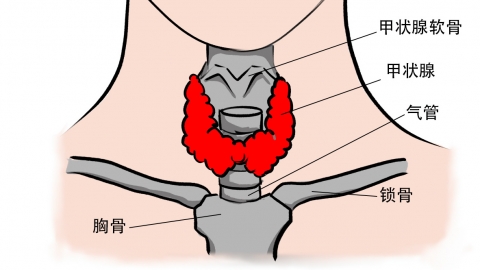What foods should not be eaten with Hashimoto's hypothyroidism?
Hashimoto's hypothyroidism refers to hypothyroidism accompanying Hashimoto's thyroiditis. Generally, there are no absolute dietary restrictions, but patients are usually advised to avoid certain foods such as purple cabbage, mustard, kelp, shrimp skins, and fatty meats. Detailed explanations are as follows:

1. Purple Cabbage: Purple cabbage contains thiocyanate, which may inhibit the thyroid's uptake of iodine. Long-term and excessive consumption could worsen insufficient thyroid hormone synthesis and be detrimental to disease control. Consumption frequency should be reduced.
2. Mustard: Mustard is highly irritating and may trigger fluctuations in immune responses after consumption, worsening thyroid inflammation and affecting thyroid function. Frequent or excessive consumption should be avoided.
3. Kelp: Kelp contains a very high amount of iodine, and patients with Hashimoto's thyroiditis often have abnormal iodine metabolism in the thyroid gland. Excessive iodine intake may increase the thyroid's workload and promote inflammation progression, thus requiring strict limitation.
4. Shrimp Skins: Shrimp skins are high in iodine and sodium. Excessive consumption may interfere with thyroid hormone synthesis regulation and increase metabolic burden, negatively affecting overall health. Intake should be controlled.
5. Fatty Meats: Fatty meats are high-fat foods. Patients with reduced metabolic function may experience fat accumulation and increased digestive burden from excessive consumption. This may also affect the efficacy of hormone replacement therapy. Consumption should be minimized.
Patients should maintain a diet that supports both anti-inflammatory effects and metabolic regulation, strictly controlling intake of the above foods. Regular follow-up of thyroid function and antibody levels is necessary, with dietary and treatment plans adjusted accordingly. Prompt medical consultation is advised if significant discomfort occurs.







